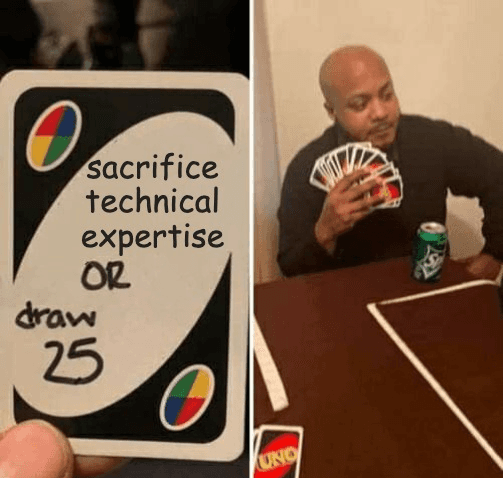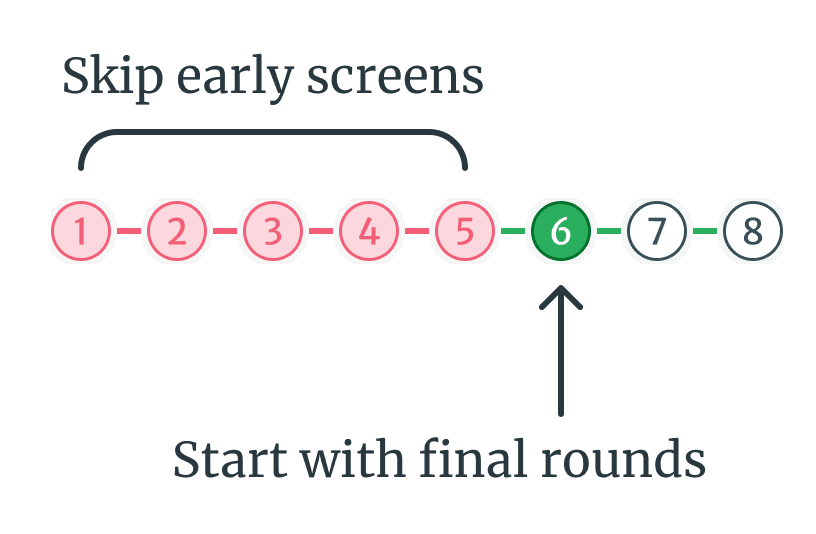Step 1
Tell us what you want
Be as specific as you like. We'll only reach out if we have something that fits your goals.
Step 2
Take our interview
90 min with an engineer. No AI, no obscure leetcode algos. Try our practice problem.
"The interview is solid. Very tough but not unfair."
"I will be honest, I have never had such an amazing interview experience before. This is how every tech interview should be!"
Step 3
Skip the line
No convincing anyone you have "five years of JSON experience". Skip to talking to technical people.
"I went in with no expectations and ended up with a job that I'm actually excited about."
"It's everything an engineer wants. Everything was just no-nonsense."
Take a no-gimmick interview
Our interview is about actual skills, not interview prep. We'll ask you to convert plain English requirements into working code, not invert a binary tree on the fly.
Learn more about our interview
Try a practice coding problem
Talk to technical people
Our entire team is technical.
When you interview with us, you talk to 10+ year ex-FAANG, ex-startup engineers. Our founder is a mathematician, not an MBA. We don't do non-technical calls, because technical skills should do the talking.

Get actionable feedback
Functions should be black boxes. Hiring processes shouldn't be.
We'll tell you exactly how you scored and why. We can offer guidance on what companies are looking for, or on how to approach tricky questions. And in most cases, if a company turns you down, we can tell you why they did that, too.


